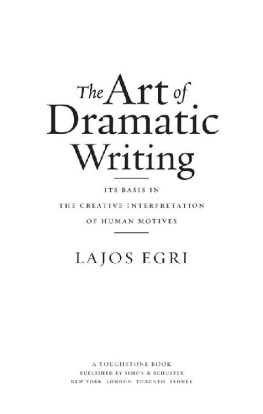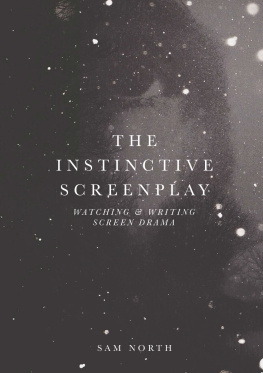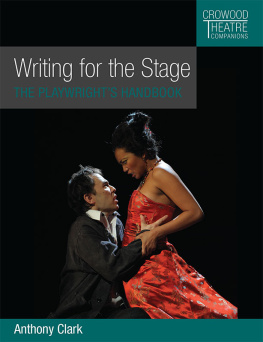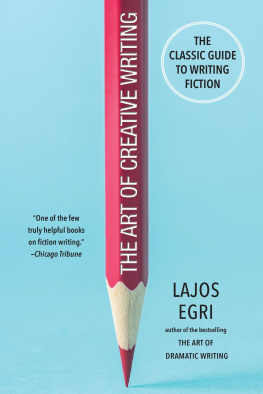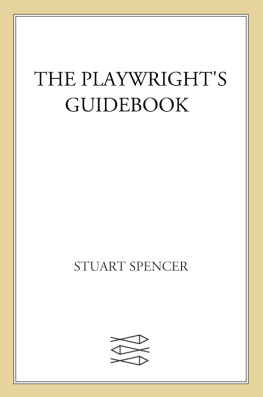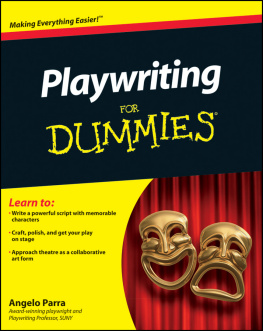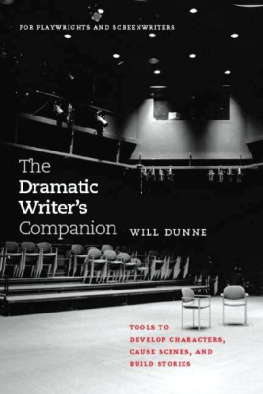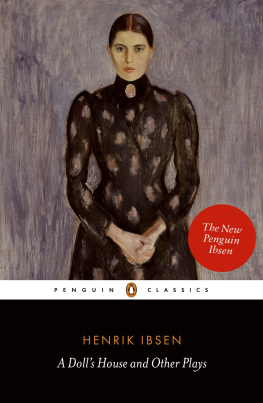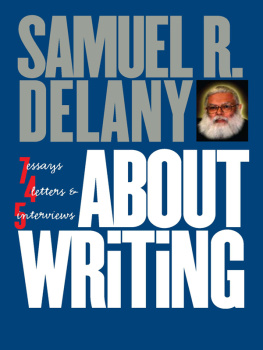Thank you for purchasing this Touchstone eBook.
Join our mailing list and get updates on new releases, deals, bonus content and other great books from Touchstone and Simon & Schuster.
C LICK H ERE T O S IGN U P
or visit us online to sign up at
eBookNews.SimonandSchuster.com
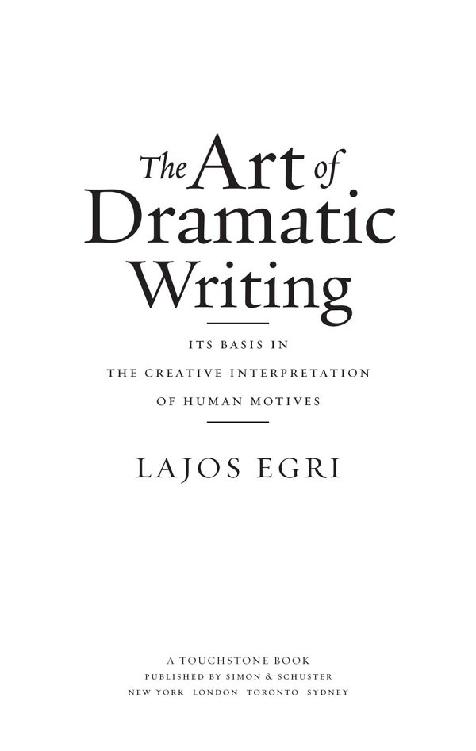

CONTENTS
To My Wife, Ilona

ACKNOWLEDGMENTS
My thanks are due to: Coward-McCann, Inc., for permission to quote from Moses L. Malevinskys The Science of Playwriting. Covici-Friede, Inc., for permission to quote from Stevedore by Paul Peters and George Sklar. Dr. Milisaw Demerec for permission to quote from his speech on Heredity, delivered before the American Association for the Advancement of Science, on December 30, 1938. Dodd, Mead & Company, Inc., for permission to quote from William Archers Play-Making, A Manual of Craftsmanship. Farrar & Rinehart, Inc., for permission to quote from Dubose Heywards Brass Ankle, copyrighted by the author in 1931. Edna Ferber and George S. Kaufman for permission to quote from their play, Dinner at Eight, published by Doubleday Doran & Company, Inc. International Publishers Co., Inc., for their permission to quote from V. Adoratskys Dialectics. Little, Brown & Company for their permission to quote from Percival Wildes Craftsmanship. The Macmillan Company for their permission to quote from Lorande L. Woodruffs Animal Biology. The New York Times for their permission to quote from Robert van Gelders interview with Lillian Hellman, April 21, 1941. G. P. Putnams Sons for permission to quote from John Howard Lawsons The Theory and Technique of Playwriting, copyright, 1936; and for their permission and the authors, Albert Maltz, to quote from his play, The Black Pit. Eugene ONeill and his publishers, Random House, Inc., for their permission to quote from his play, Mourning Becomes Electra. Random House, Inc., for their permission to quote from Irwin Shaws play, Bury the Dead. Charles Scribners Sons for their permission to quote from Robert Sherwoods play, Idiots Delight. John C. Wilson for permission to quote from Noel Cowards plays, Design for Living, copyright, 1933, and published by Doubleday Doran & Company; and Hay Fever, copyright, 1925. Dwight Deere Wiman and the New York Herald Tribune for their permission to quote from Mr. Wimans article, Advice: Producer to Playwright, April 6, 1941.

INTRODUCTION
I must say at once, in all fairness to both Mr. Egri and to the rules he has helped annihilate in his book, The Art of Dramatic Writing, that it is far more than a manual on playwrighting.
It is difficult to catalogue this book in a sentence, just as it must have been difficult to say in a handful of words what, when they first came from the press, Veblens Theory of the Leisure Class was to sociology, what Parringtons Main Currents in American Thought was to American literature. These books, in addition to casting floodlights into the hitherto dark corners of their respective fields, illuminate so much neighboring terrain, open up windows on so many other provinces of life, that they take some time in the evaluation. Time, I am certain, will deal handsomely with The Art of Dramatic Writing.
Being a play producer by profession, I am naturally most keenly interested in what Mr. Egri has to say to me directly, as a professional man. The theater is as studded with rules as is a baked ham with cloves. None is more rigid, none more unfalteringly axiomatic, than the one that says nobody can possibly know what a good play looks like until it has been produced. This is quite obviously a rather expensive procedure. It leaves one with something less than a feeling of satisfaction when, as is all too often true, the ultimate result is so bad. It is no small thing, therefore, to be able to say of a book what I feel I can say of The Art of Dramatic Writing. Here is the first book I have come across that can tell why a play is bad long before you have signed contracts with highly paid actors and commissioned various members of seven unions to proceed with the construction of a production that will cost as much as a Long Island mansion.
Mr. Egri writes with the solidity, the authority, the ease that, it seems to me, comes only from knowing more than one profession. He writes with the sort of hard, shining clarity that comes of sure-footedness in all the nooks and crannies, all the mountains and valleys of life itself. This man, you feel, has been around a long time and in many places. He has understood much and learned more than most. Mr. Egri writes like a very wise man.
The best of the many things I can say for The Art of Dramatic Writing is that from now on the average person, including myself, will have no excuse for inarticulateness. Once you read Mr. Egris book you will know why any novel, any movie, any play, any short story was boring, or, more important, why it was exciting.
I feel that this book will greatly influence the American theater and the public as well.
Gilbert Miller

FOREWORD
The Importance of Being Important
During the classic time of Greece a terrible thing happened in one of the temples. One night the statue of Zeus was mysteriously smashed and desecrated.
A tremendous uproar arose among the inhabitants. They feared the vengeance of the gods.
The town criers walked the city streets commanding the criminal to appear without delay before the Elders to receive his just punishment.
The perpetrator naturally had no desire to give himself up. In fact, a week later another statue of a god was destroyed.
Now the people suspected that a madman was loose. Guards were posted and at last their vigilance was rewarded; the culprit was caught.
He was asked,
Do you know what fate awaits you?
Yes, he answered, almost cheerfully. Death.
Arent you afraid to die?
Yes, I am.
Then why did you commit a crime which you knew was punishable by death?
The man swallowed hard and then answered,
I am a nobody. All my life Ive been a nobody. Ive never done anything to distinguish myself and I knew I never would. I wanted to do something to make people notice me... and remember me.
After a moments silence he added, Only those people die who are forgotten. I feel death is a small price to pay for immortality!
Immortality!
Yes, we all crave attention. We want to be important, immortal. We want to do things that will make people exclaim, Isnt he wonderful?
If we cant create something useful or beautiful... we shall certainly create something else: trouble, for instance.
Just think of your aunt Helen, the family gossip. (We all have one.) She causes hard feelings, suspicion, and subsequent arguments. Why does she do it? She wants to be important, of course, and if she can achieve this only by means of gossip or lying, she will not, for one moment, hesitate to gossip or lie.
The urge to be outstanding is a fundamental necessity in our lives. All of us, at all times, crave attention. Self-consciousness, even reclusiveness, springs from the desire to be important. If failure arouses compassion or pity, then failure might become an end in itself.
Take your brother-in-law Joe. Hes always running after women. Why? Hes a good provider, a good father, and strangely enough, a good husband. But there is something missing in his life. He is not important enough to himself, to his family, and to the world. His affairs have become the focal point of his existence. Each new conquest makes him feel more important; he feels he has accomplished something. Joe would be surprised to learn that his craving for women is a substitute for the creation of something more significant.
Next page
